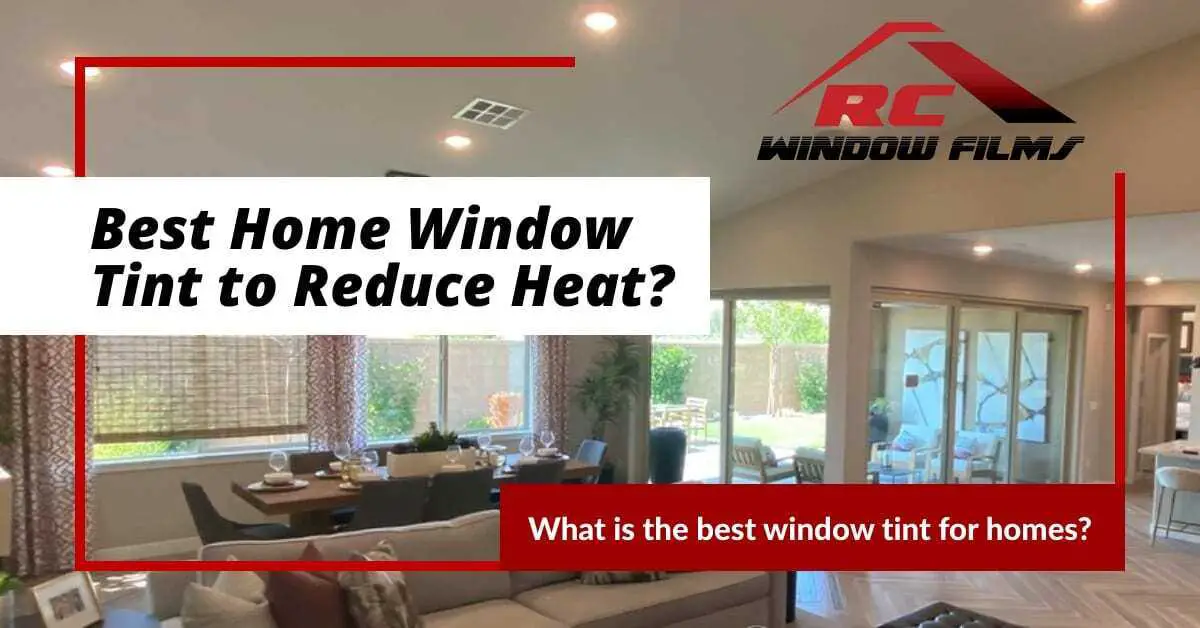Last Updated on January 28, 2024 by Vadym

Window tint has become a popular solution for many people seeking to reduce the amount of heat entering their homes or vehicles. But does window tint really keep heat out? The short answer is yes, but let’s dive deeper into the science behind it.
Window tint is typically made of a thin, multi-layered film that is applied to the inside surface of a window. This film contains special pigments and dyes that are designed to absorb or reflect certain wavelengths of light, including infrared radiation. Infrared radiation, also known as heat radiation, is a major source of heat gain in buildings and vehicles.
When sunlight enters a tinted window, the film works by either absorbing the heat or reflecting it back out into the atmosphere. This process reduces the amount of heat that is transmitted into the interior space, making it cooler and more comfortable. In addition to reducing heat, window tint can also block harmful ultraviolet (UV) rays, which can fade furniture, flooring, and cause skin damage.
It’s important to note that not all window tints are created equal. The effectiveness of a window tint in keeping heat out depends on various factors, such as the type of tint used, the darkness of the tint, and the quality of the installation. Therefore, it’s crucial to choose a reputable professional to install the window tint to ensure optimal heat reduction.
In conclusion, window tint is indeed capable of keeping heat out by absorbing or reflecting infrared radiation. By reducing heat transmission, it helps to maintain a cooler and more comfortable environment. So, if you’re looking to beat the heat and enhance energy efficiency, window tint is definitely a worthwhile investment.
Energy Efficiency and Cost Savings
Window tinting can significantly improve the energy efficiency of your home or office, leading to potential cost savings. By blocking the sun’s rays and reducing the amount of heat entering the building, window tint helps keep interior spaces cooler and reduces the need for air conditioning. This can result in lower energy consumption and decreased utility bills.
When windows are tinted, they can block up to 99% of harmful UV rays, which not only helps protect your skin but also prevents your furnishings and upholstery from fading and deteriorating due to sun exposure. This means that you won’t have to keep replacing or repairing these items as frequently, saving you money in the long run.
Additionally, window tinting can help maintain a more consistent and comfortable indoor temperature. By reducing heat gain and minimizing hot spots, window tint ensures that your living or working environment remains pleasant and insulated, without the need for excessive heating or cooling.
Furthermore, window tint can enhance privacy and security by making it more difficult for outsiders to see inside your property. This can reduce the need for curtains or blinds, allowing more natural light to enter and brighten up the space. Natural light not only gives a more pleasant ambiance but can also contribute to improved mood and productivity.
In summary, window tinting offers various energy-saving benefits and long-term cost savings. From reducing energy consumption and utility bills to protecting your furnishings and enhancing privacy, window tinting makes for a worthwhile investment in both comfort and efficiency.
UV Protection and Skin Health
When it comes to protecting your skin from the harmful effects of the sun, window tint can play a crucial role. Ultraviolet (UV) rays are the primary cause of skin damage, including sunburns, premature aging, and an increased risk of skin cancer. Window tint, particularly those with a high UV protection factor, can help to block these harmful rays and minimize the damage they can cause.
Excessive exposure to UV rays can lead to various skin conditions, such as wrinkles, fine lines, and sun spots. Over time, this exposure can also weaken the skin’s elasticity and contribute to the development of skin cancer. By installing window tint, you can significantly reduce your exposure to these harmful rays and protect your skin’s health.
Window tint acts as a barrier between your skin and the sun’s rays, filtering out a significant percentage of UV radiation. This function not only reduces the risk of sunburns but also helps to prevent the early signs of aging on the skin. Tinted windows can be especially beneficial for those who spend long periods of time in their cars or have windows in their homes exposed to direct sunlight.
In addition to protecting your skin, window tint can also offer other health benefits. It can help to reduce the heat and glare that enters your car or home, making your surroundings more comfortable and reducing the strain on your eyes. This can be particularly important for individuals with light sensitivity or those who spend a lot of time driving or working in areas with intense sunlight.
It’s important to note that not all window tints provide the same level of UV protection. When choosing a window tint, look for one that offers a high percentage of UV blockage, usually labeled as a high SPF or UV protection factor. Additionally, ensure that the tint complies with local regulations and laws, as some areas have restrictions on the darkness of window tints.
In conclusion, window tint can be a valuable investment for both your skin health and overall well-being. By reducing your exposure to harmful UV rays, it can help to prevent skin damage and minimize the risk of skin cancer. Consider installing window tint with a high UV protection factor to fully enjoy its benefits.
Glare Reduction and Increased Comfort
Window tint not only helps to block out heat, but it also reduces glare from the sun. Glare can be a major annoyance, especially when driving or working on a computer. The sun’s rays can cause reflections on glass surfaces, making it difficult to see clearly. Window tint helps to minimize this effect by reducing the amount of light that enters through the windows.
By reducing glare, window tint can increase comfort levels in a variety of settings. Whether you’re driving, relaxing at home, or working in an office, having less glare allows you to see more clearly and without the strain on your eyes. This can help to reduce eye fatigue and improve overall visual comfort.
In addition to reducing outside glare, window tint also helps to prevent internal glare. This occurs when sunlight bounces off reflective surfaces inside a room, such as mirrors or glossy furniture. The tinted windows act as a barrier, reducing the amount of internal glare and creating a more comfortable atmosphere.
Overall, window tint can significantly improve comfort levels by reducing glare and creating a more pleasant environment. Whether it’s in your car, home, or office, tinted windows can enhance your overall visual experience and make your space a more comfortable place to be.
Privacy and Security
Window tint not only helps to keep heat out, but it also offers an additional layer of privacy and security for your vehicle. By reducing the visibility from the outside, window tint prevents prying eyes from easily seeing into your car.
This added privacy is especially beneficial when you leave valuable items in your car, such as your laptop, phone, or other personal belongings. With tinted windows, potential thieves will have a harder time scouting for easy targets, as they won’t be able to see what’s inside your vehicle.
Moreover, window tint can also deter theft and break-ins. The film used in window tinting is typically made of a strong and durable material that adds an additional layer of protection to your windows. This makes it more difficult for someone to break the glass and gain access to the inside of your car.
In addition to privacy and security, window tint can also provide protection in case of accidents or collisions. The film helps to hold the shattered glass together, preventing it from flying around and potentially causing injuries to the occupants of the vehicle.
Overall, window tint not only keeps heat out but also offers a range of benefits, including enhanced privacy and security for your vehicle. It provides peace of mind knowing that your personal belongings are less visible and your windows are better protected against theft and potential damage.
Improved Aesthetics and Increased Resale Value
Window tint not only provides practical benefits but also enhances the overall appearance of your vehicle. The sleek and stylish look created by tinted windows can significantly improve the aesthetics of any car, making it stand out from the crowd. The tinted windows give your vehicle a more sophisticated and luxurious feel, instantly upgrading its visual appeal.
In addition to the improved aesthetics, window tint can also increase the resale value of your vehicle. When potential buyers see tinted windows, they perceive the car as having a higher value and being well-maintained. Tinted windows are often seen as an added feature that can attract buyers and command a higher selling price. Whether you plan to sell your car in the near future or simply want to maintain its value over time, window tint can be a worthwhile investment.
Furthermore, having tinted windows can provide added privacy and security. With darker windows, it becomes more difficult for others to see inside your car, protecting your personal belongings and deterring potential theft. This increased privacy can give you peace of mind, especially when parking your vehicle in public areas.
Overall, window tint offers not only practical benefits but also improved aesthetics and increased resale value. With its ability to upgrade the look of your vehicle and provide added privacy and security, tinted windows are a valuable addition to any car.
Heat Rejection and Temperature Control
Window tint is not only known for its ability to block from harmful UV rays, but it also plays a crucial role in heat rejection and temperature control. When sunlight strikes a window, it brings in significant amounts of heat. However, window tint acts as a barrier that can block and reflect a portion of the heat.
With the installation of window tint, the heat rejection properties can vary depending on the type and quality of the tint. High-quality window tints usually have a higher ability to block heat as they are designed with special coatings and materials. Some advanced window tints can reject up to 70% or more of solar heat, helping to keep the temperature cooler inside a car, home, or office.
By reducing the amount of heat that enters through windows, window tinting can contribute to a more comfortable indoor environment. It helps to balance the temperature by keeping excessive heat out, making it easier to maintain a stable and consistent level of comfort. This benefit is particularly valuable in areas with hot climates or during summer months when the sun’s rays are at their strongest.
In addition to heat rejection, window tinting also helps to regulate the temperature by minimizing heat loss during the colder months. The insulating properties of window tint can provide an extra layer of insulation, reducing the escape of heat through windows and helping to maintain a warmer interior.
Overall, window tinting offers not only protection from UV rays but also a significant impact on heat rejection and temperature control. It can make a notable difference in enhancing comfort levels and energy efficiency in various environments, be it a vehicle, home, or office.
